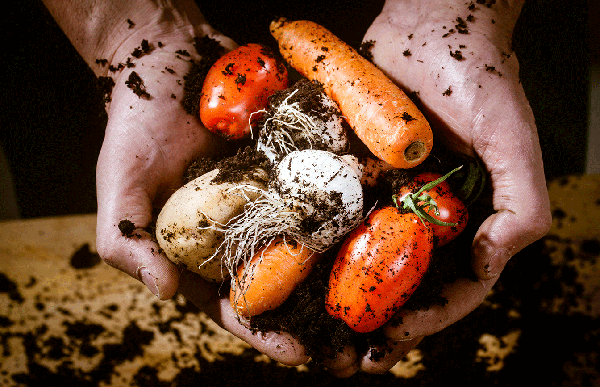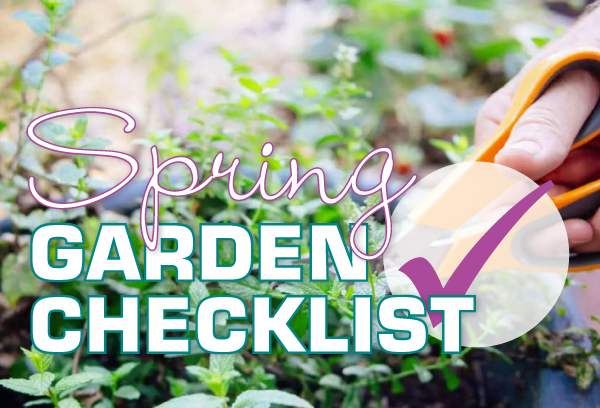
This is not the year to forego a vegetable garden. I say this with the intention for you to pad your food security stash with fresh, healthy produce from your own garden. I am making a list, checking it twice and sharing it with you. Cross out or add on as your situation requires, but get started on a plan.
I think gardeners in this COVID era need a catchy name like they had in WWII with victory gardens. Something with charm, and not as dryly direct as “Garden to Supplement Purchases,” but you get the point.
I am writing this column as Texans are struggling. The Texas Tribune reported on this year’s Valentine’s Day Produce Massacre. Most of their citrus and vegetable crops are lost due to the freezing temperatures. Collected milk in parts of the state is not making it to the pasteurizing plant so it is being flushed. The supply chain was already being stretched due to COVID. It might be time to recall some of the full containers of food that are sitting in ports and have not yet been placed on ships and exported.
CNBC, Bloomberg and Japantimes are some of the news sources unveiling the large quantity of food loaded in shipping containers that is stockpiling at ports due to ships choosing to load empty containers rather than take U.S.-grown food. Is the food left to rot? U.S. grocery stores and food banks are challenged to keep their shelves full. I suspect the issue of lean food shelves is global, so why is the food sitting?
I don’t want to write about political stuff in which I am only on the receiving end of events, but it adds some context to my statements and concerns. Things are not like they were, and it remains to be seen how much everything has truly been affected. In previous years, my gardening effort was done for the good of my mind and my body, as a stress relief and distraction from chores. My plants responded and appeared thankful—plus, they don’t talk back. I have often shared how thankful I am that my food supply comes from others, be it the grocery store or the farmer’s market. Whatever I harvested, it was supplemental.
This is not the year to forego a vegetable garden or do it with little interest. So let’s make some productive plans and implement our own sources of food. I promise to put more effort into growing vegetables this year, especially those that can be canned.
Let’s plan simply for this year’s garden, with a focus of nutritious, high-quality produce.
First, plan and organize. I try to be phenomenally productive at all times, striving to get 90 minutes out of every hour. In this COVID era of new or no routines, sometimes I ask myself “what did I accomplish today?” Was there any progress on that to-do list? To maintain focus and productivity, and as a measurement of both, I have a list and I date when a line item is completed. I used to do it on scraps of paper, but my lists are now in a notebook where accomplishments and current objectives can be reviewed. This garden list will go there.
What is needed for a productive garden?
Sunlight – a minimum of 6 hours a day
Is the garden situated in the yard or in containers, or both? Can it be expanded? If you are starting a garden, can the productive fruit of vegetable plants replace the planting of ornamentals?
Water – a long soaking can be better than short, light sprinkling done often
How is the runoff flow during and after a storm? If there is one, can it be harnessed or redirected to irrigate a garden? Are there rain lakes? If so, research rain gardens where the placement of plantings and rocks slow down flow and irrigate before the collection point. Have you tried rain barrels or a cistern for gravity-forced irrigation? Also, distilled water does drain from the AC unit. Can it be directed or can a productive plant be placed nearby for the benefit?
Soil – The best soil is an aerated, humus-filled soil with the proper balance of minerals and elements needed for optimum plant growth and fruit production. Have you been adding to a compost pile? What about worm farming? Is manure easily available? Is the soil so heavy that it needs an amendment to have pliability?
Healthy Seeds and Plants – Peruse catalogs, both online and printed.
Know the different seed types so you are purposely choosing hybrid, organic, GMO or heirloom. Add herbs to your plantings. Place orders. Be sure to order seeds for the three planting times (now for cool weather crops, summer crops (May) and fall crops (July through mid-August)
Calendar, Proper Timing and Recognition of Climatic Norms – Tennessee has three growing seasons. Take advantage of them.
It’s time to get cool-season vegetables in. Do you have micro-climates on your property? Micro-climates provide a different growing environment due to unique features that can be man-made or natural. You might find one near your chimney or a protected corner near your home. Bodies of water can create a micro-climate as well as urban areas. If you have a micro-climate, you have an opportunity to have plants in that area that are not typical to the area. Lucky you!
Daily Interactions and Observations – Observations require critical thinking
Just because something “should be” does not mean it is. How are the plants responding? What are their leaves and shapes telling you? Is the temperature different in one area? Wherever you are gardening is your place. Get to know the details by observation and assessment.

To-Do List
– Get soil test, buy needed amendments
– Purchase all seeds needed for the three plantings this year (March–April, mid-May, August)
– Get peas planted near chain link fence
– Buy cabbage plants
– Sprinkle lettuce, spinach and kale seeds into roughed earth
– Buy large pots for porch
– Get summer seeds started for transplants
– Collect manure, layer into summer growing side of garden. Mix the rest into compost pile.
– Need edging
– Install wire fence
– Start new gardening area. Break up branches, layer, add fall leaves and compost, perlite, peat moss, topsoil
– Fertilize existing bushes
– Remove any invaders—privet, Japanese honeysuckle, kudzu, English ivy and burn, do not compost
– Prune trees before growth and bloom set (and, as an aside, show your intelligence and do not tree top)
– Plant new fruit trees and shrubs; provide water to assist in establishing the plant
– Assess water collection, and any redirection needed
Don’t forget wildflowers and cultivated flowers that support pollinators, for without pollinators there is no harvest. With space, they can be planted within the garden. Herbs, too, are a benefit, so plan for a pot or two or an herb garden. There are many resources and opinions. Especially, if you are just starting, assess the resources for validity. The extension service would have accurate information for your area. If you pull up your answers online, add .edu to your search string to weed out opinions and keep it to university-based info.
For your own knowledge and review, take pictures of your garden and keep a journal of progress to assist you in improvements next year. And so begins a new growing season . . .












